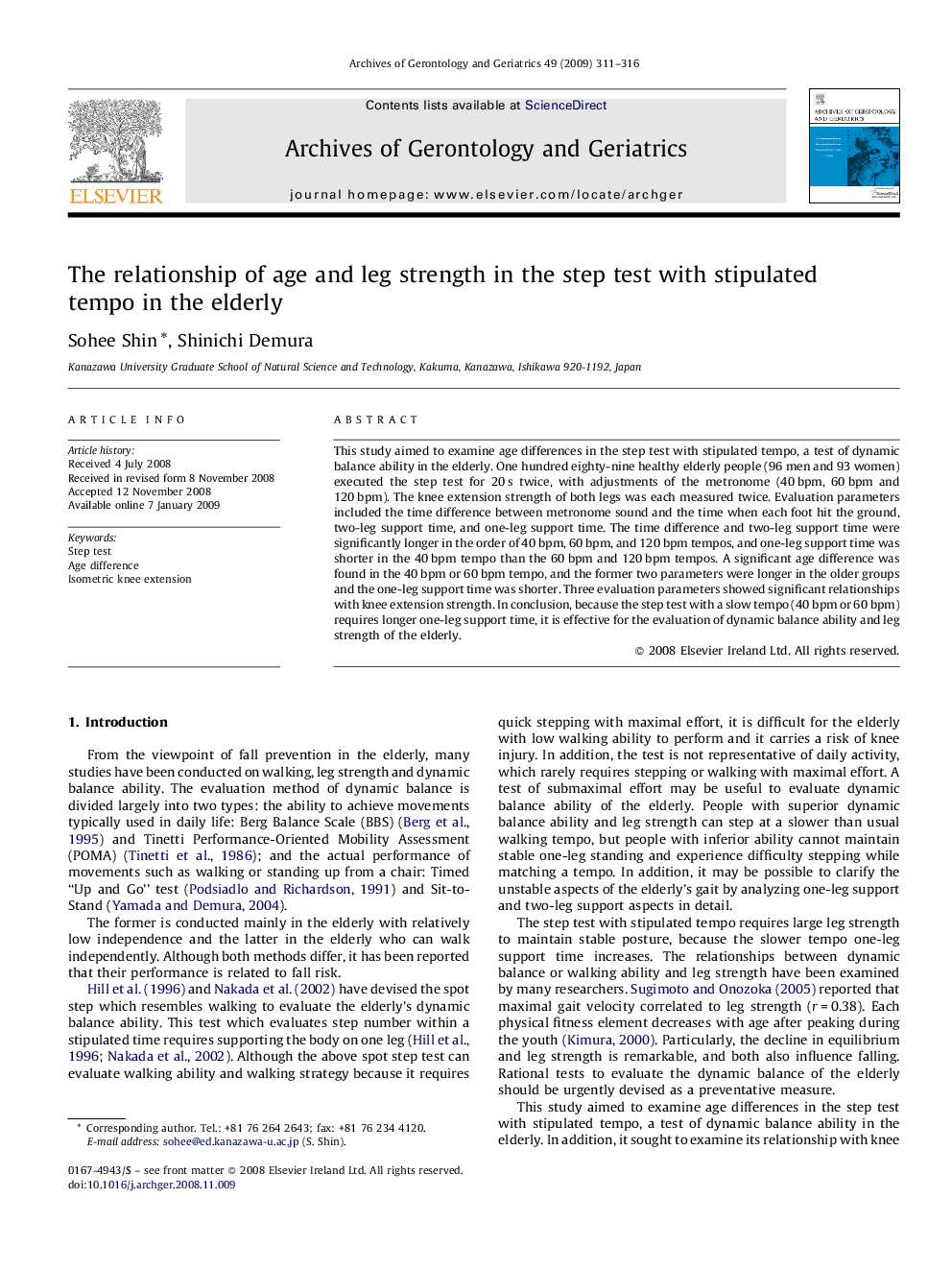| Article ID | Journal | Published Year | Pages | File Type |
|---|---|---|---|---|
| 1903895 | Archives of Gerontology and Geriatrics | 2009 | 6 Pages |
This study aimed to examine age differences in the step test with stipulated tempo, a test of dynamic balance ability in the elderly. One hundred eighty-nine healthy elderly people (96 men and 93 women) executed the step test for 20 s twice, with adjustments of the metronome (40 bpm, 60 bpm and 120 bpm). The knee extension strength of both legs was each measured twice. Evaluation parameters included the time difference between metronome sound and the time when each foot hit the ground, two-leg support time, and one-leg support time. The time difference and two-leg support time were significantly longer in the order of 40 bpm, 60 bpm, and 120 bpm tempos, and one-leg support time was shorter in the 40 bpm tempo than the 60 bpm and 120 bpm tempos. A significant age difference was found in the 40 bpm or 60 bpm tempo, and the former two parameters were longer in the older groups and the one-leg support time was shorter. Three evaluation parameters showed significant relationships with knee extension strength. In conclusion, because the step test with a slow tempo (40 bpm or 60 bpm) requires longer one-leg support time, it is effective for the evaluation of dynamic balance ability and leg strength of the elderly.
